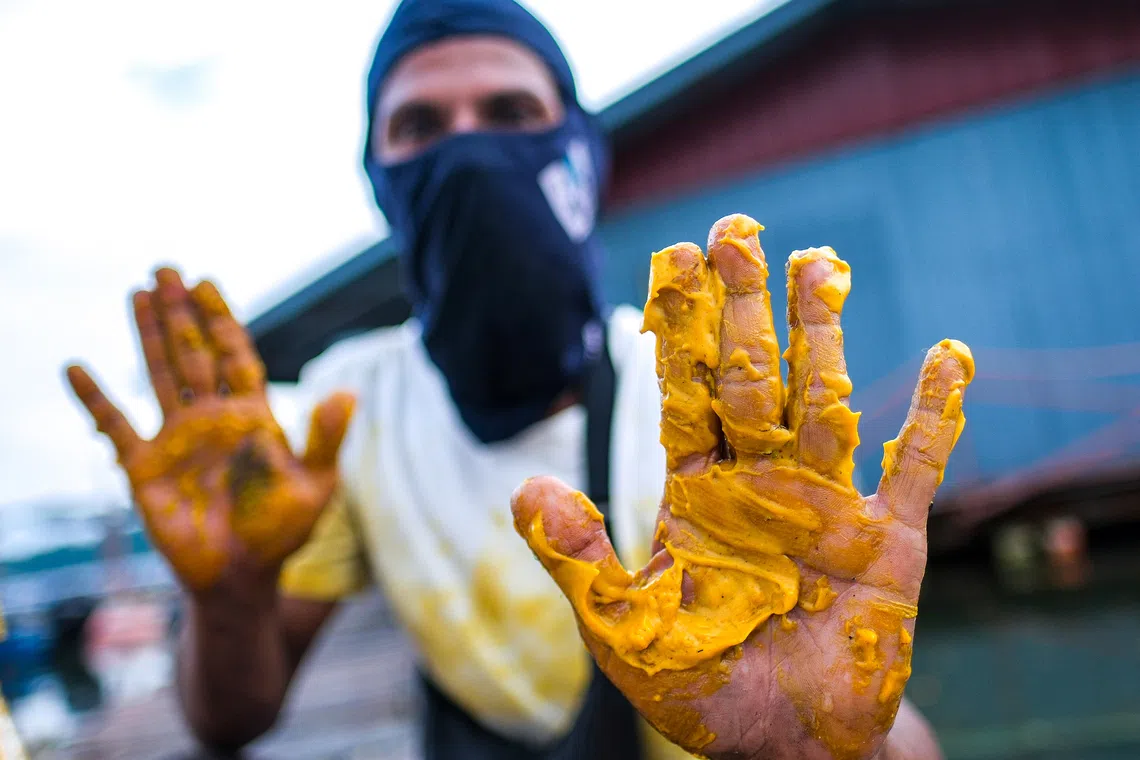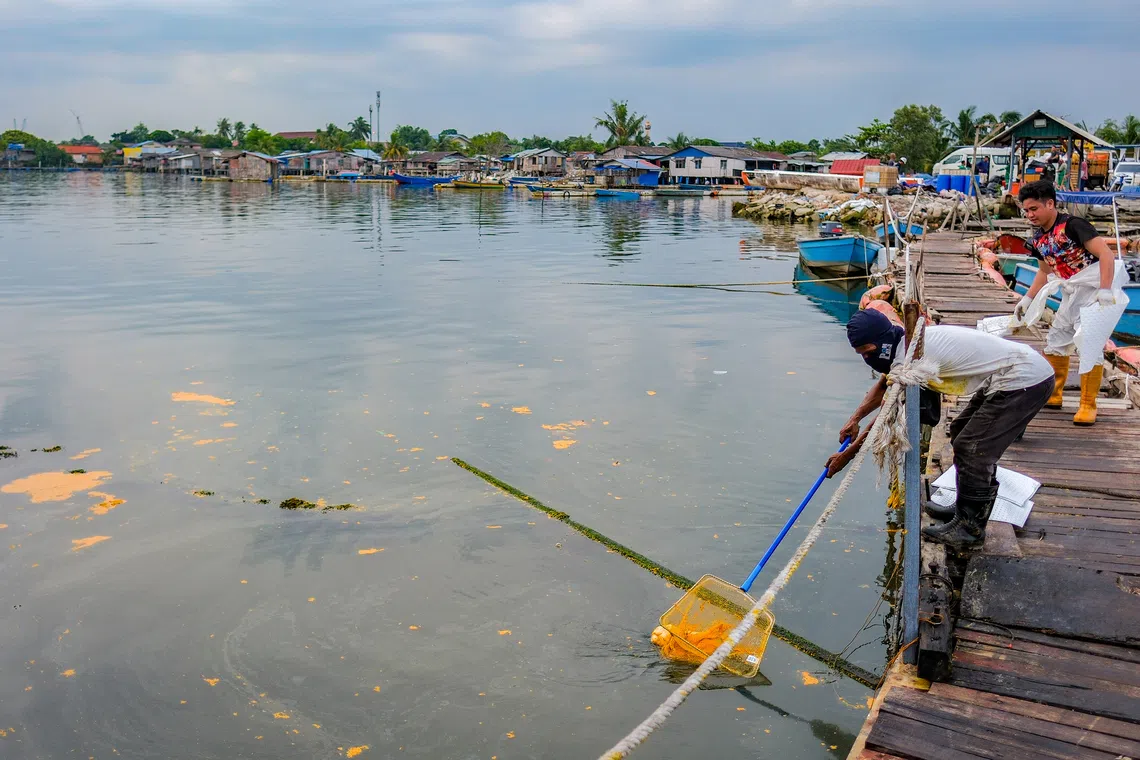Singapore authorities monitoring East Johor Strait closely after 2 pollution incidents
Sign up now: Get ST's newsletters delivered to your inbox

Johor residents surveyed by Bernama expressed concern after hundreds of fish were found dead because of the muddy water in the river.
PHOTO: BERNAMA
SINGAPORE – The Singapore authorities are monitoring bodies of water in Johor following two incidents of pollution.
The National Environment Agency (NEA), in a Facebook post on Nov 1, said that one incident affects the Johor River and was caused by sand mining activities, while the second involves a palm oil spill that affects coastal waters off Kampung Pasir Putih.
It added that it is in touch with the Department of Environment in Johor and understands that the sources of pollution from both incidents have been contained and stopped.
“Oil clean-up is also ongoing and most of the palm oil has been cleaned up,” it added.
It said water quality in Singapore has been normal, and the shoreline and local fish farms have not been affected so far.
“The Singapore Food Agency is working closely with fish farms in the East Johor Strait to take the necessary preventive measures,” said NEA.
It added that the National Parks Board has not observed any impact on biodiversity-rich sites at Pulau Ubin, Coney Island Park, Pasir Ris Park or Changi Beach Park.
Meanwhile, operations at PUB’s Johor River Waterworks have been temporarily suspended, the national water agency said earlier on Nov 1.
In response to media queries, it said it was aware of a water pollution incident affecting the Johor River.
However, PUB also said that water supply in Singapore remains unaffected as it has stepped up production at local plants to meet demand.
“PUB is monitoring the raw water quality in the Johor River closely,” it added, noting that the suspension is a precautionary measure. “Operations will resume when water quality checks show that the Johor River quality is back to normal.”

One of the two incidents of pollution involves a palm oil spill that affects coastal waters off Kampung Pasir Putih.
PHOTO: BERNAMA
Malaysia’s Environment Department on Oct 31 confirmed damage to a “bund silt pond” believed to be caused by sand dredging activities upstream, reported Bernama.
The report quoted Johor’s Environment Department director, Dr Mohd Famey Yusoff, as saying that the state’s water regulatory body has ordered an immediate stop to the sand dredging operations.
However, he added then that the escaped silt could not be contained and that it continued to flow into the river.
Residents surveyed by Bernama expressed concern after hundreds of fish were found dead because of the muddy water in the river.
The news outlet said the muddiness is believed to have been caused by a burst holding pond belonging to a sand mining company, and that residents have made police reports in response.
Singapore is allowed to draw up to 250 million gallons of water a day from the Johor River under the 1962 Water Agreement. The agreement will expire in 2061.
In return, Singapore is obliged to provide Johor with treated water – up to 2 per cent of the water the Republic imports.
The Linggiu Reservoir, which was constructed by PUB and is located upstream of the Johor River Waterworks, releases water into the river to supplement its flow.
“This enables reliable abstraction of raw water at the Johor River Waterworks, which is owned and operated by PUB for treatment,” the PUB website states.
In the second incident, fishing in the waters off Kampung Pasir Putih was temporarily suspended after Malaysian fishermen reported a palm oil spill in the area.

Fishing in the waters off Kampung Pasir Putih was temporarily suspended after Malaysian fishermen reported a palm oil spill in the area.
PHOTO: BERNAMA
The spill, detected on Oct 30, is estimated to have spread over a 1km stretch and affected more than 100 fishermen, Bernama reported, citing Kampung Pasir Putih Fishermen’s Association head, Mr Hamzah Allahdita.
The source is suspected to be a palm oil processing plant.
Mr Hamzah also told the news outlet that fishermen and mussel farmers in the area had to suspend their activities amid clean-up works, and this has disrupted their main income source.
The officer in charge of the Seri Alam police district, Assistant Commissioner Mohd Sohaimi Ishak, was quoted in the Bernama article as saying that fishermen have made 10 police reports over the incident, and that investigations are ongoing.



